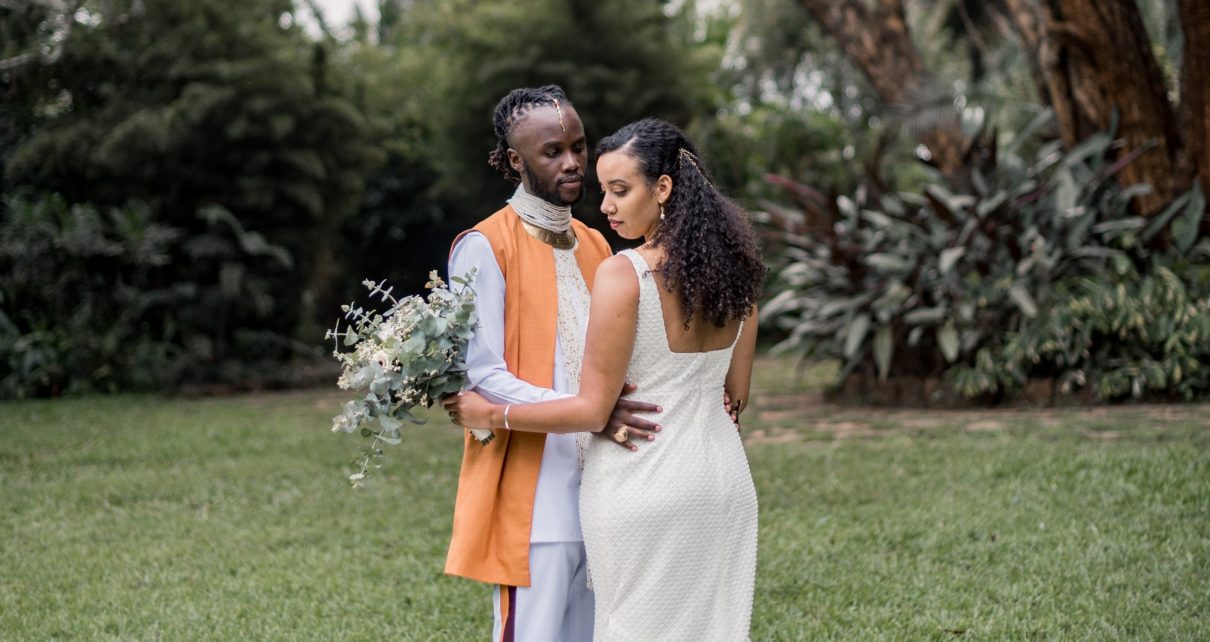Luo men marry Kikuyus for cultural bragging rights and ‘kutoa tint’ but not bewitchingly brown Taita women…
By Kieran Ng’endo
Contributing writer/features
@UndercoverKe
You could be dating someone you know in your hearts of hearts will make your mother pray overnight, sobbing. Trying to marry from the ‘wrong tribe’ can induce grey hairs when your father too swears against your choice by the pubic hair of his ancestors.
Reasons range from incompatible cultures, language barriers, stereotypes, suspicions, fears, ignorance, long-held negative perceptions. Add too, practices like witchcraft, wife inheritance, bride price expectations and dramatic funerals. Some Kenyans believe there are communities which eat people, would you believe it? Indeed, some decades back those who intermarried were labeled as outcasts, prone to curses.
There are communities which are more compatible to marry into than others, whichever way you look at it
Though this has changed via education and exposure in a globalised world, there are communities which are more compatible to marry into than others, whichever way you look at it. And though today couples are looking for communities which are exposed, learned even, each has its match. Here goes…
The Kikuyu: Jeff Kihiu, a lawyer, reckons the Kikuyu match well with communities from the larger Mt Kenya region, Meru, Embu and Kamba because of cultural, traditional and language malleability. “Politically, they were all part of GEMA (Gikuyu, Embu, Meru Association) which united them in tribal comfort. The Kikuyu also match well with the Maasai from their proximity as “geographical factor” is key when it comes to solving land disputes.”
But Meru women don’t look kindly at Kikuyu men as marriage partners. They think them too stingy and hard to ‘sit on.’
Kikuyus are not compatible with some communities over religion, culture, food, lifestyle, traditions and hygiene reasons. They rarely marry Somalis, Boranas for instance. Kikuyu men, on average, also fear Kambas over kamuti and their love for small time fun which they deem petty, wastage of money.
While Kikuyu women marry Luhya men, the same is not the case with Kikuyu men over the small matter of bringing over the extended family.
The Luo: Andae Afande, a businesswoman in Nairobi says the Luo prefer Luhya because they are patient, submissive, hard working “and loves to be pampered which men from the lake side are good at.” Geographical proximity also helps and despite Luos being Nilotes and Luhyas Bantus “our cultures are somehow similar” and besides “Luhya women also love cooking a lot and Luo men love eating humongous meals.”
Luo women can be bossy and high maintenance-which tightwad Kikuyu men find too hot to handle
Luo men find it culturally prestigious marrying Kikuyu women for bragging rights and ‘kutoa tint’ for their children. It is also easier when couples come from exposed and learned families. But Kikuyu men rarely marry Luo women. For starters, Luo women can be bossy and high maintenance-which tightwad Kikuyu men find too hot to handle. Ruracio can also be tricky due to language barrier, incongruent cultures, food and traditions. The lakeside is also very far from Mt Kenya and culturally the sun should never set while at the in-laws…let alone sleeping over!
The Luos are not compatible marrying the Taita over perceived laziness and glaring cultural differences. Besides, bewitchingly beautiful Taita women drive many men crazy and Luo find them hard to pin, domestically.
The Kalenjin: Are compatible within themselves: The Kipsigis marrying the Nandi due to similarity of customs and traditions. John Kipng’etich says there is also “trust they have built for years” and that Kalenjins take marriage seriously, are cool and value families.
But Tugen men hardly marry Kipsigis women. They are aggressive and love partying, drink too much. The Kipsigis are entrepreneurial and extremely bold and most marry Kisiis and Maasai due to proximity. Tugen men were beneficiaries of scholarships to foreign universities and thus rub their noses down at others.
Kalenjins also avoid Kikuyus due to the land conflicts and their attachment to children
The Kalenjins are not compatible with Kambas. They perceive them as lacking drive but love gossip and can bring home entire clans. They also avoid Kikuyus due to the land conflicts and their attachment to children.
Kambas: They are ‘open’ to many communities due to large swathes of Kambaland being a ‘hardship area’. But most are compatible with the Taita because of proximity and cultural blending says Millicent Zighe, a resident of Taita Taveta. “Taita’s are known to make the best wives and husbands because of our politeness and good looks” but “nowadays people look at different things like well educated or exposed communities.” Michael Kasera, a video producer, says Kambas and Kisiis also marry each other as things like juju are prevalent to both.
Kambas are not compatible with the Luhya over fears Kamba women tame their men with juju
Kambas are not compatible with the Luhya over fears Kamba women tame their men with juju and for being sex athletes and thus prone to away matches.
The Kisii: They marry among themselves but are also compatible with Kambas and Merus (with whom they share anger management issues).
Kisiis are incompatible with the Nandi over historical conflicts, being serial players, possessiveness and jealousy. They also have a cultural attachment to children which scares Nandi women. Kisii men are also emotional and some cry during wife ‘battery’ sessions which turns off Nandi women to whom crying is a cultural no for a man.
Meru: Marry among themselves but also do well with the Embu and Kisiis due to biological ties and genetic traits like hot tempers. But Meru women shun Kikuyu men for their apparent stinginess besides unromantic tendencies of forgetting birthdays or wedding anniversaries and being too individualistic against extended families.
The Merus are also not compatible with pastoral Boranas and Somalis over historical conflicts.
Coasterians: They blend well with Luos who are attracted by their beauty and culinary delights. Both love lavish lifestyles. Due to perceived laziness, Coasterians are not compatible with entrepreneurial Kikuyus who also fear Coastal women as charming, high maintenance cheats.
Somalis: Marry among themselves besides intermarrying with Boranas to promote peaceful co-existence between two pastoral communities. They are hardly compatible with non Muslims.
Editor’s note: Insightful comments on any of our platforms might be added to enrich the story. Peace!

